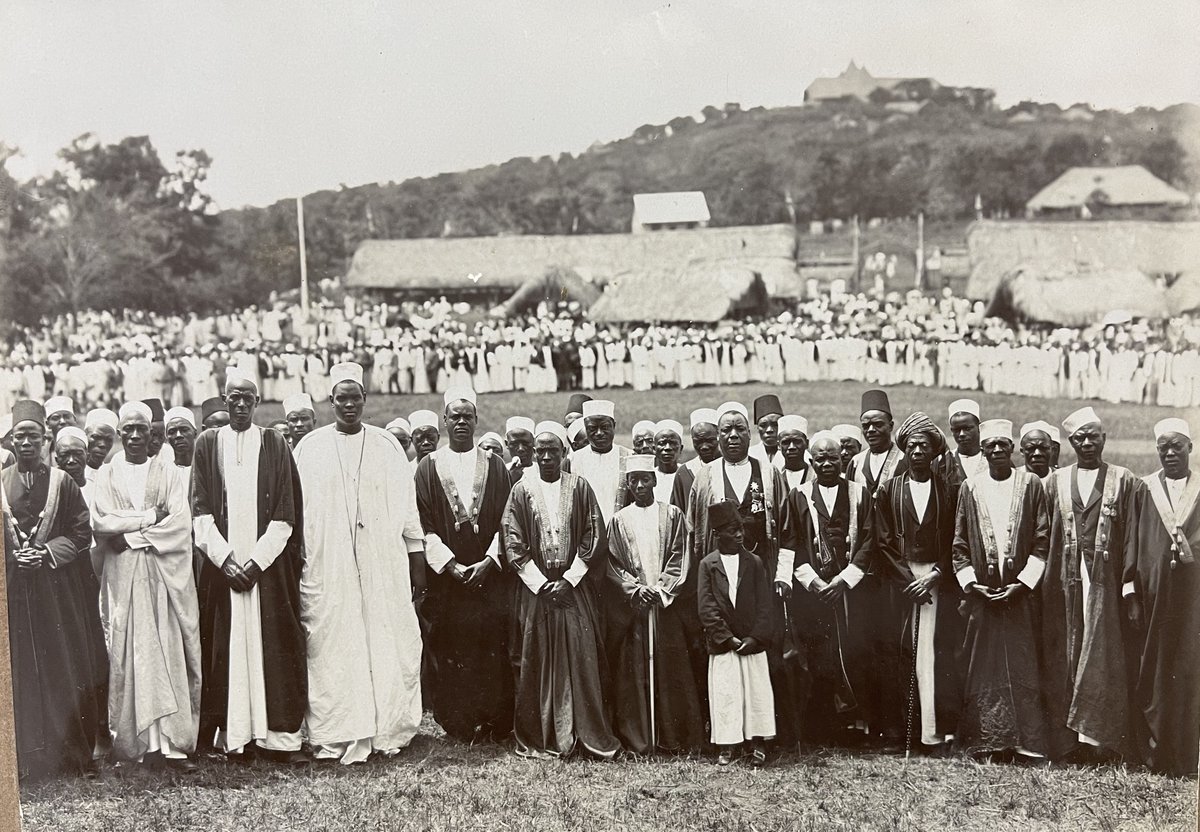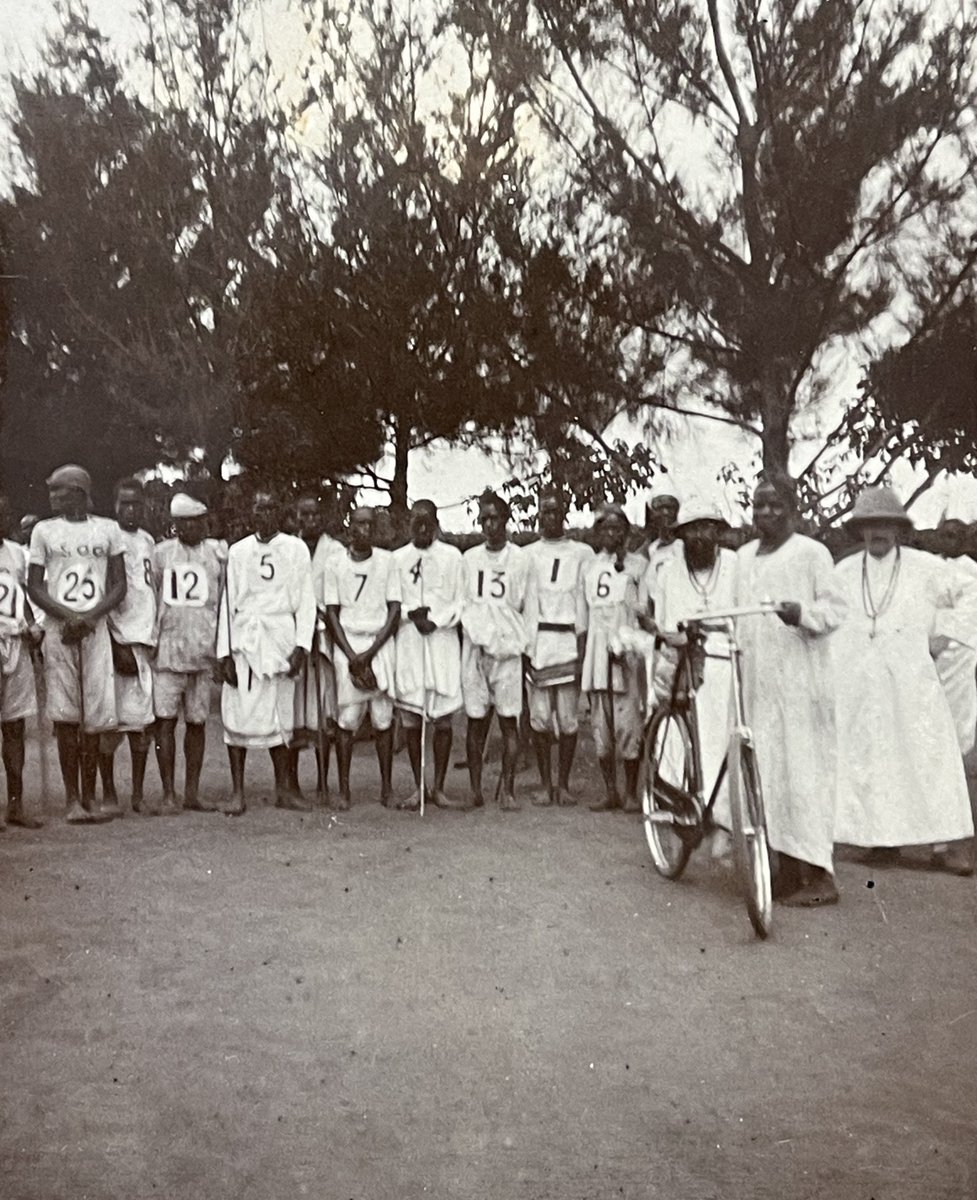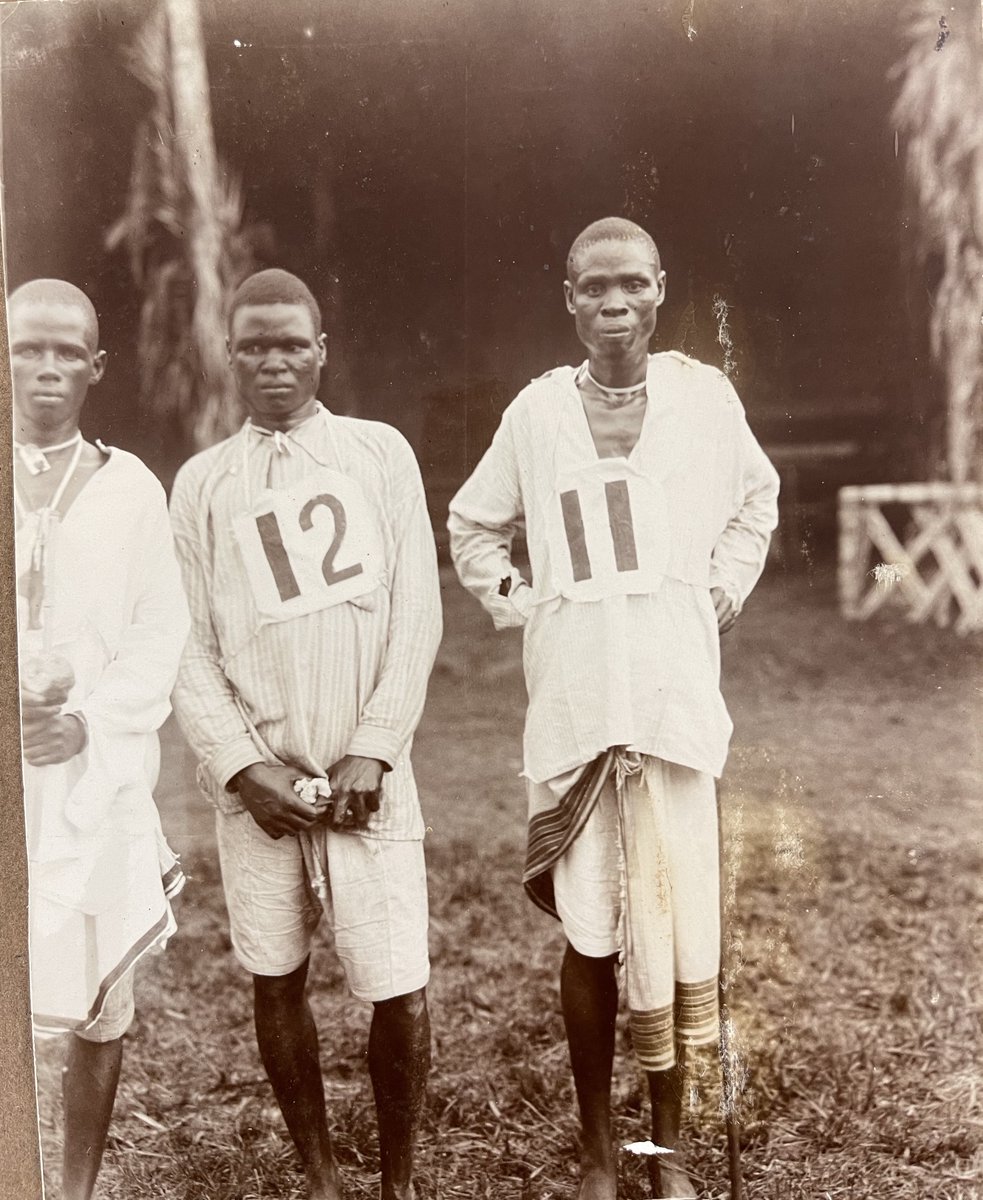
Recreational & competitive swimming in UG existed long before colonization & the #Olympics. It existed for hundreds of years. By the late 1800s, one Luganda proverb re: swimming criticized judges who refused to dig deeply into a dispute, "Okuyita kungulu—ng'omuwuzi." 1/8 

By 1920, Munno reworked the proverb slightly differently, offering a subject prefix to –yita, "Bayita kungulu—nga muwuzi." Throughout the 1800s, there were numerous programs to politically manage water, from Acholi rain rituals to Kabaka Mwanga's ambitious excavation project. 2/8
Colonial swimming pools, in time, also sought to give measurement and structure to the natural world. This was nothing new. In this photo, we see Lamech Kiwanuka, EMK Mulira, and one unidentified colleague during the early 1940s working on the pool at King's College, Budo. 3/8
The pool was lined with stones and maintained a diving board for Ugandan, colonial, and international swimmers. EMK Mulira reflected a good amount on swimming and diving in his unpublished autobiography. 4/8
In the 1940s, he recalled swimming at Bradford-Upon-Avon. But as Mulira would recall, "I was not very much of a swimmer but I got famous as a diver." Mulira continued: 5/8
"Sir Arnold Hodson was Gov. of the Gold during our time [Mulira had studied in Ghana] and who was a great swimmer himself and used to come to swim in the College Swimming Pool [at Achimota]. One day he was visiting Uganda in 1942, and I was introduced to him by Hennis Herber, 6/8
(Lord Hemingford) then Headmaster of King's College, Budo, when he added that I had been at Achimota before, Sir Arnold commented, "Oh, the great swimmer!" 7/8
For Mulira, swimming provided an international space in which he could do much more than swim and dive---it offered a fluidity through which he could position himself not so much as an expert diver, but as an astute diplomate capable of navigating elite sociability. 8/8
• • •
Missing some Tweet in this thread? You can try to
force a refresh











